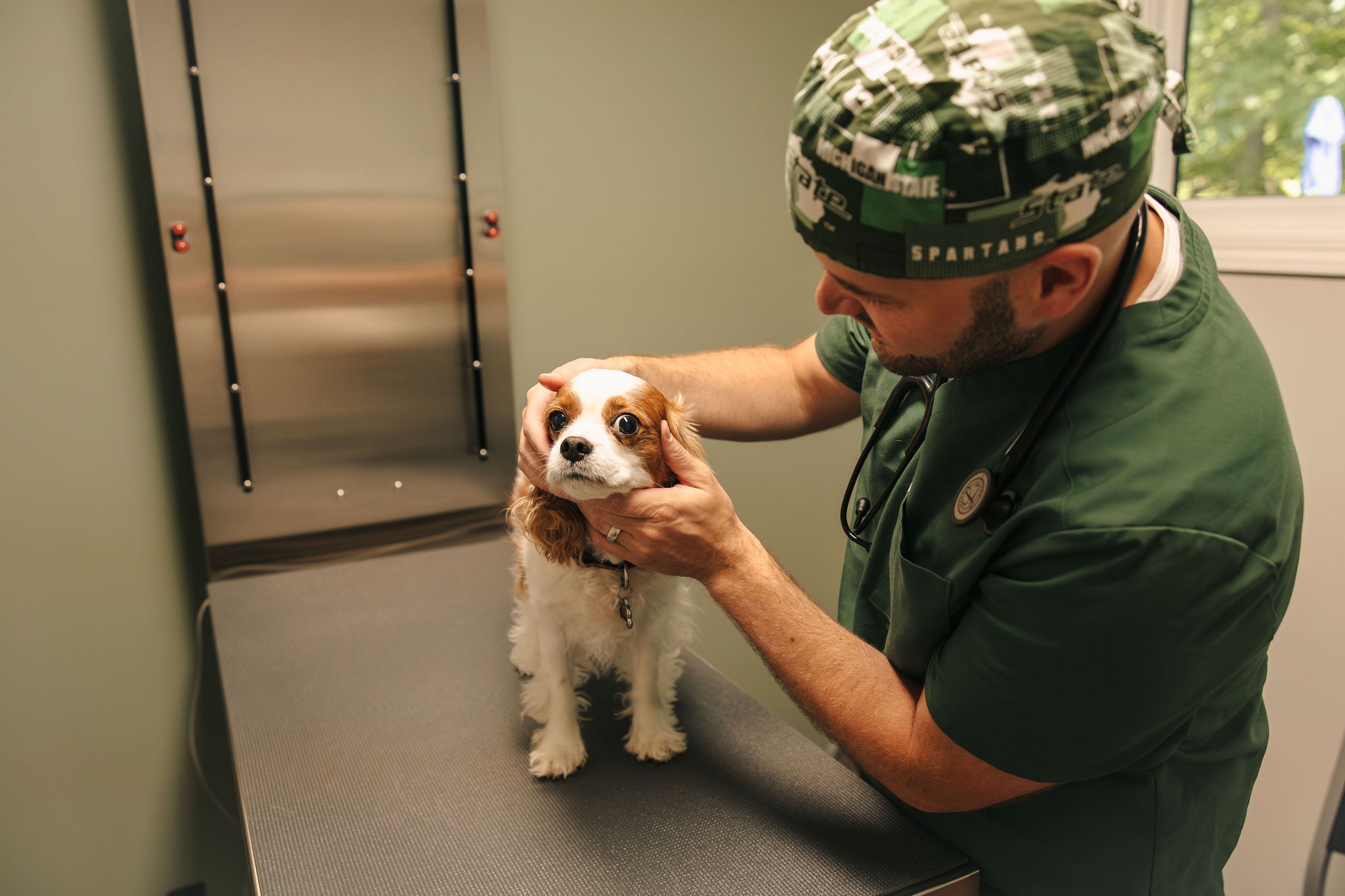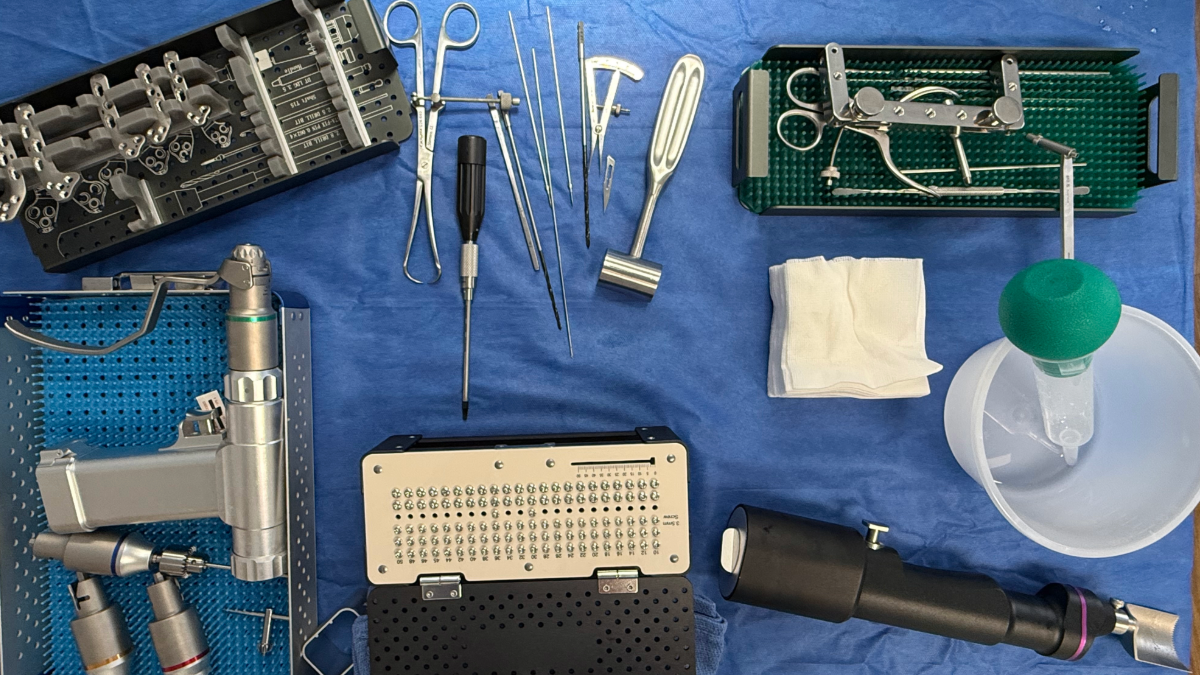Spectrum of Care in Veterinary Medicine

Veterinary Care and the Spectrum of Treatment Options
As veterinarians, we face a unique challenge every day: ensuring that every pet gets the care they need, regardless of their owner’s circumstances. In veterinary medicine, we often discuss the "spectrum of care" as a way to provide tailored treatment options based on what’s possible and practical for both the pet and their owner.
Veterinary Care: A Spectrum Approach
Veterinary medicine is both a science and an art—one that balances medical expertise with empathy, creativity, and adaptability. There is no one-size-fits-all approach. The spectrum of care emphasizes offering various levels of treatment tailored to a pet's needs while respecting the financial constraints and preferences of the pet owner.
Sometimes, this means crafting solutions that fall short of the gold standard but still provide effective, ethical, and humane care—options that both the veterinarian and the pet owner can feel confident in.
At Omnivet, we firmly believe in this approach. By offering multiple levels of care, we strive to ensure pets in Traverse City and beyond receive the treatment they need, even when gold-standard solutions aren’t feasible.
The Reality of Offering Spectrum-Based Care
In today’s world of rapid litigation and social media influence, offering spectrum-based care is increasingly challenging. Many veterinarians feel pressured to recommend only the most advanced (and often expensive) treatments due to concerns about their reputation, licensure, and livelihood. Even when alternative, more affordable care options are appropriate and in a pet’s best interest, fear of misunderstandings, negative online reviews, or even legal action can make veterinarians hesitant to present these alternatives.
I have personally experienced this challenge in my practice. What I’ve learned is that clear communication and thorough documentation are key to navigating these difficult situations. (More on that in a future post!)
Understanding the Veterinary Care Spectrum
The spectrum of care includes several levels of treatment, ranging from routine wellness care to intensive emergency procedures and specialist referrals. Depending on the pet’s condition and the owner's ability to provide care, options may include:
- Medication trials instead of immediate surgery
- Less invasive procedures when advanced surgical techniques are not financially feasible
- Palliative or chronic management plans when curative treatment is not an option
The goal is to ensure that pets receive compassionate, evidence-based care within their owner's realistic capabilities.

Even When It’s Possible, It May Not Be Feasible
For example, let’s consider a dog with a ruptured cranial cruciate ligament (analogous to the human ACL). The gold standard treatment is a Tibial Plateau Leveling Osteotomy (TPLO)—a surgical procedure that costs over $5,000 per knee. Given that most dogs will need the same surgery on their other knee in the future, the total cost can exceed $10,000.
For many pet owners, this cost is simply out of reach. However, alternative options exist:
- A Modified Retinacular Imbrication Technique (MRIT), a more affordable surgery
- Conservative management with pain medications, weight management, and physical therapy
Providing these options does not mean a veterinarian is negligent for not performing a TPLO. Instead, it shows thoughtfulness and flexibility—taking a step back to assess the entire situation, including the pet, the owner, and financial realities.
Balancing Medical Ethics with Practicality
A key role of a veterinarian is to clearly communicate all available options—especially when the gold-standard treatment isn’t feasible. The challenge, however, is that offering sub-gold-standard options comes with risks.
In today’s review-driven world, veterinarians may hesitate to discuss alternatives for fear of backlash or accusations of subpar care. Yet, when done transparently and with the pet's best interest in mind, providing spectrum-based options is a hallmark of responsible veterinary medicine.
This approach requires trust, communication skills, and sensitivity—both in understanding pet owners’ limitations and ensuring they feel supported in making informed decisions.
Key Questions for Veterinarians When Creating a Care Plan
When formulating a treatment plan, veterinarians should ask:
- Do I have the resources and skills to treat this pet effectively?
- What are the long-term costs and care requirements?
- Can the owner realistically manage post-treatment care?
- Can they lift their pet up and down stairs after surgery?
- Can they drive to a referral center every week for chemotherapy?
- Are there palliative options to improve the pet’s quality of life if gold-standard care is not an option?
- Does the owner fully understand the risks and benefits of a sub-gold-standard treatment plan?
These questions help guide compassionate, ethical, and practical decisions—ensuring pets receive care that is both medically sound and realistic for their owners.
Spectrum of Care vs. Standard of Care
It’s important to distinguish between these two concepts:
- Standard of Care:
- The basic level of care that a reasonably competent veterinarian would provide under similar circumstances.
- Ensures professional responsibility and adherence to accepted medical practices.
- Spectrum of Care:
- Recognizes that alternative, evidence-based treatment options can be appropriate.
- Does not lower the standard of care but rather provides flexibility while maintaining ethical responsibility.
Veterinarians who offer spectrum-based care are not providing substandard treatment—they are simply adjusting care to fit the individual situation while still adhering to medical best practices.
Emergency Veterinary Care in Traverse City: FAQs
1. What should I do if my pet needs emergency care in Traverse City?
📞 Call Omnivet at (231) 244-2860. Our experienced team will assess your pet’s condition and help you decide the best course of action—whether it’s an immediate walk-in appointment or a scheduled visit.
2. How do I find an emergency veterinarian in Traverse City?
📍 Omnivet is conveniently located at: 3960 West Royal Drive, Traverse City, MI 49684
We are easily accessible from major roads, ensuring quick access when time is critical.
3. How much does emergency veterinary care cost in Traverse City?
Emergency care costs vary based on treatment needs. At Omnivet, we offer transparent pricing and work with pet owners to develop treatment plans within their budget. Ask us about CareCredit and financing options.
Conclusion
At Omnivet, we understand that veterinary care is not a one-size-fits-all solution. The spectrum of care is about providing realistic, humane, and ethical treatment options tailored to each pet’s unique needs and their owner’s circumstances.
Whether you're seeking routine care or emergency services in Traverse City, Omnivet is here to guide you with compassion, transparency, and expertise.
📞 Need help? Call us at (231) 244-2860 or visit Omnivet.org to learn more.


